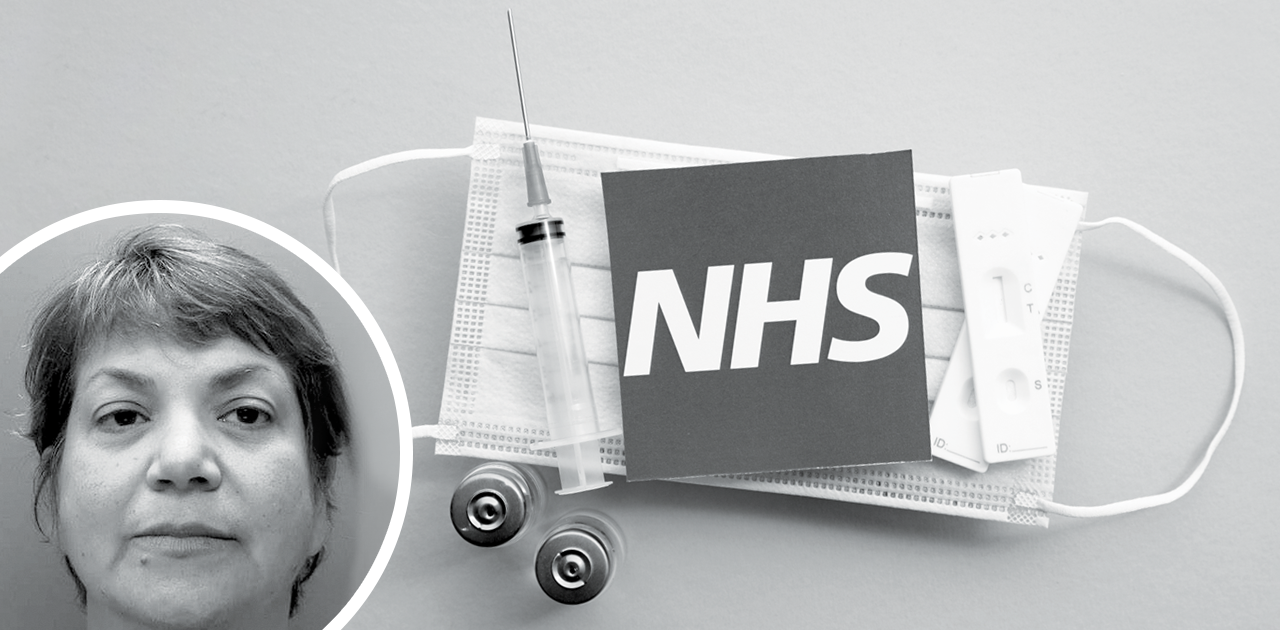A woman who forged her medical qualifications to obtain senior positions within the NHS as a hospital Psychiatrist has been sentenced to seven years at Manchester Crown Court after being found guilty of 20 offences including fraud and forgery.
In an investigation led by Cumbria Police and supported by the NHS Counter Fraud Authority, Zholia Alemi was found to have fraudulently obtained in excess of £1million from the NHS during the twenty-two years that she worked within a number of UK health bodies posing as a qualified psychiatrist.
In 1995, Alemi presented to the General Medical Council (GMC) supplying documents and information in support of her application to obtain UK doctor registration. These documents included a degree certificate from the University of Auckland, and a letter written by the faculty registrar confirming her qualifications. Investigations subsequently revealed that this documentation was completely false, and she had subsequently secured positions in a number of NHS bodies within the UK over the course of the next 22 years – all of which were based on her false and forged qualifications.
NHS Counter Fraud Authority investigators have worked extensively with our partners in Cumbria Police to enable the Crown Prosecution Service to put evidence before the court to show the full extent of Alemi’s offending. Our specialist financial investigators have worked to identify and restrain assets owned by Alemi and will now use their powers under the Proceeds of Crime Act to ensure that money defrauded by Alemi is returned to the NHS for patient care.
Richard Rippin, Head of Operations at the NHS Counter Fraud Authority said: “Zholia Alemi has deceived the NHS over a considerable period of time and practised under forged and false qualifications, with the potential for harm to patients. This outcome and sentence is warmly welcomed as a suitable punishment for this appalling deception, as well as an acknowledgement of the substantial amount of NHS money she has fraudulently obtained during the period of employment, which we will now take steps to recover.
This case has proven to be an excellent example of how effective partnership working across multiple agencies is key to bringing to justice those who seek to deceive and defraud the NHS, and I commend those in Cumbria Police, who have worked openly and collaboratively with ourselves, the Crown Prosecution Service, the General Medical Council and all affected NHS bodies to bring this case to such a successful conclusion”
If you suspect that anyone is committing fraud or another economic crime against the NHS, tell NHSCFA about it – you can visit our main website to report online: www.cfa.nhs.uk or telephone our 24-hour reporting line 0800 028 40 60.
“NHS fraud. Spot it, report it, together we stop it”
For more information contact the NHSCFA press office on 07801 743448 / media@nhscfa.gov.uk.
Notes to Editors
- The NHS Counter Fraud Authority is a Special Health Authority established under the NHS Act 2006 as amended. It is sponsored by the Department for Health and Social Care, accountable to the department’s Anti-Fraud Unit (AFU).
- The NHSCFA assess that the NHS vulnerability to fraud, bribery and corruption leads to an estimated loss of £1.198 billion.
- When NHSCFA uses the term ‘fraud’, we refer to a range of economic crimes, such as fraud, bribery, corruption or any other illegal acts committed by an individual or group of individuals to obtain a financial or professional gain.
- NHSCFA also supports the work of the NHS Counter Fraud Service (Wales).
- NHSCFA works closely with NHS Local Counter Fraud Specialists across the NHS in England to ensure that healthcare crime is tackled, and a culture of fraud prevention and deterrence is in place.
- NHSCFA works collaboratively with NHS Scotland Counter Fraud Services on fraud issues.
- There are some 300 professionally trained and accredited Local Counter Fraud Specialists in place within health bodies across England and Wales.
